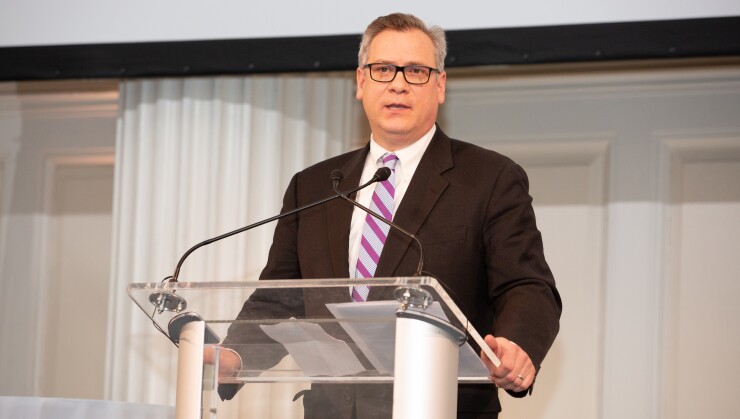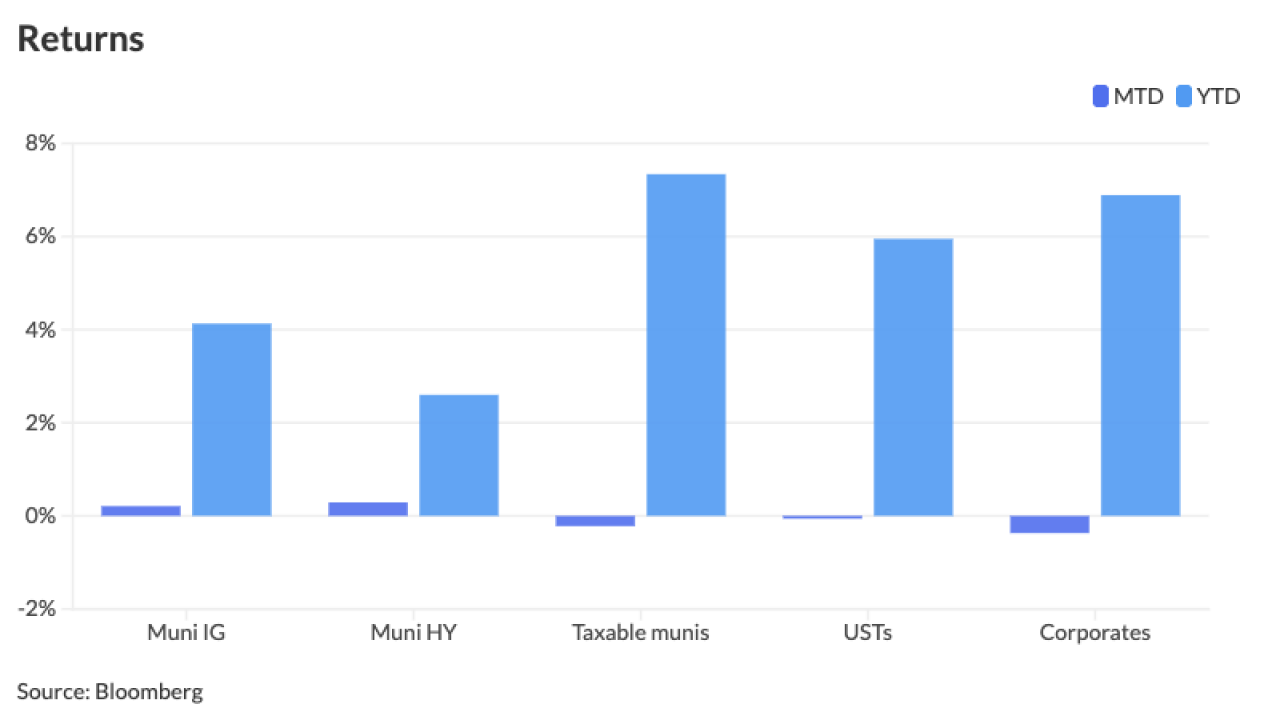With new federal infrastructure funds come new responsibilities.
So said New York’s Metropolitan Transportation Authority finance director Patrick McCoy Monday speaking to hundreds of cities and state officials at the Government Finance Officers Association’s 116th conference in Austin, Texas.
The $1.2 trillion Infrastructure Investment and Jobs Act is a “huge shot in the arm” for infrastructure needs, McCoy said.
The question is, “is the issuer community ready?” he asked. “Projects will have to be federalized,” he said, meaning that issuers will have to comply with rules like Buy America and prevailing wage requirements that they may not be used to.

As one of the nation’s largest issuers, the MTA is familiar with the complexities of federal requirements, McCoy said.
“We spend billions of dollars every year, and we’re set up to deal with projects that become federalized,” he said. “And they do come with requirements and reporting regimens that can appear cumbersome. My point is, if your jurisdiction isn’t regularly receiving federal grants, it just represents a new administrative challenge."
Issuers unfamiliar with federal projects should ask their municipal advisors for help, or hire advisors with that type of experience, he added.
The IIJA allocates funding to more than 350 distinct programs, most of which come with their own rules and guidance. States and cities across the country have hired grant writers and infrastructure coordinators to ensure they get a piece of the pie, but once they have the funds in hand, will face the administrative challenge of ensuring they are complying with federal rules.
McCoy singled out provisions like Buy America, Build America, which requires that various goods, manufactured products, materials, and services, are made in the U.S., and the Davis Bacon Act, which covers prevailing wage requirements for federal workers.
Reporting duties mark a whole other batch of requirements.
In May, the U.S. Department of Transportation waived for 180 days the Buy America rules related to construction materials. The waiver came in part after stakeholders like the American Association of State Highway and Transportation Officials warned that the Buy America provision would “exacerbate delay and cost concerns” for project delivery.
Meanwhile, despite the new dollars, inflation remains a major challenge and may prompt some issuers to reconsider their priorities, McCoy said.
“When you plan for big infrastructure, that process can take months or, in New York, years of planning, and then conditions change and we need to be nimble to react to change that is going to impact the cost of delivery and financing the project,” he said. “It’s worth asking: are projects we are ready to execute now [worth executing] under this new normal? The new normal has not unveiled itself yet; we’re still in a discovery stage.”
In a later interview, McCoy said the MTA does not currently plan to drop or delay any projects due to inflation.
The MTA is set in July to release new ridership projection into 2026.
In related news, McCoy said the authority is starting to craft broad ESG disclosure.
“We’ve begun the process to start a narrative discussion of ESG in our annual disclosure, but we’re doing it very deliberately to not over disclose those pieces of ESG that we’re not quite ready to build into the disclosure regiment,” he said. “We know that investors are very interested but we don’t want to set ourselves up for a disclosure regiment that we can’t meet year in and year out.”





